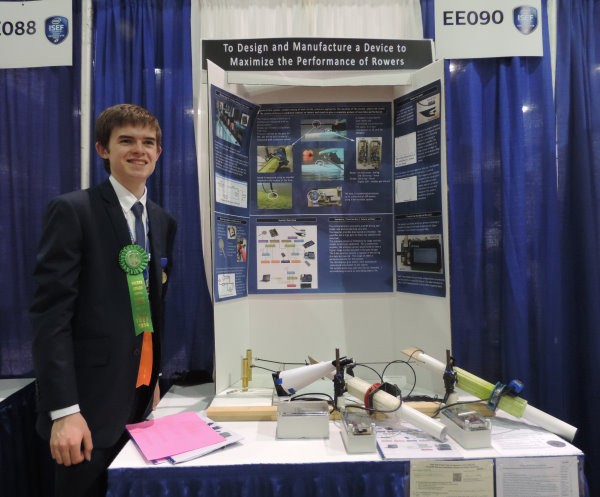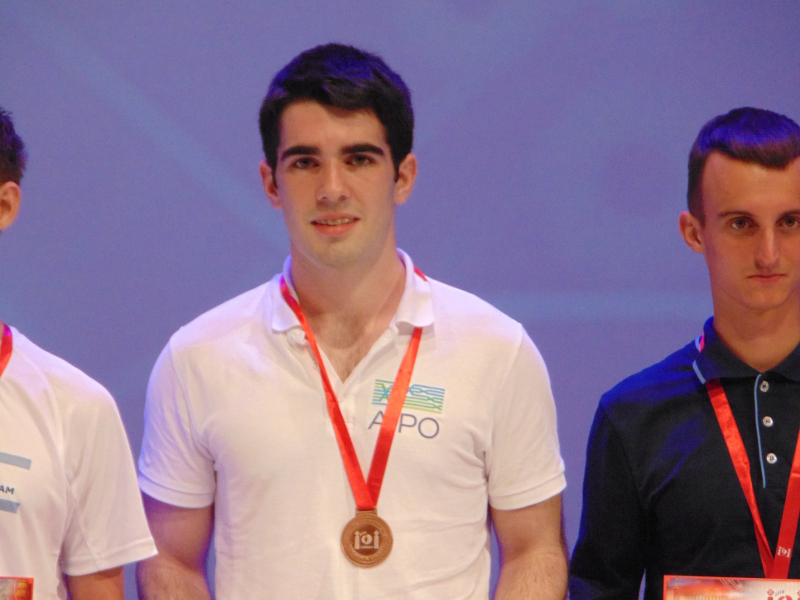From left: Ciara Judge, Sophie Healy-Thow and Émer Hickey speak at the Excited digital learning festival in Dublin, May 2014
As the BT Young Scientist & Technology Exhibition (BTYSTE) gets under way, we look back on the past year’s successes for kids and teenagers in science and technology.
In a year in which a teenager was awarded the Nobel Peace Prize, 2014 was an inspiring time demonstrating that young people can achieve just about anything they set their minds to – much like the remarkable innovators, coders, mathematicians and scientists on this list.
Ireland’s youth had a particularly gratifying year, as previous BTYSTE winners and other champions gained international acclaim, and our next generation asserted themselves as leaders with a strong voice calling their elders to attention.
Yes, Whitney, the children are our future, and it looks to be a very bright future indeed.
Kristoffer Von Hassel
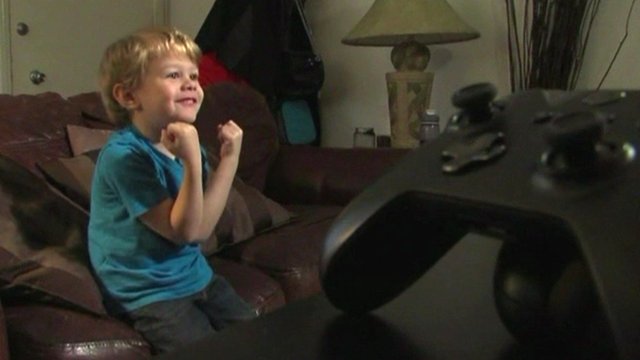
Kristoffer Von Hassel. Video still via KGTV/ABC News
Last April, five-year-old Kristoffer Von Hassel was officially acknowledged by Microsoft as a security researcher after he stumbled across a critical vulnerability in the Xbox console.
The kid from California realised that entering the wrong password for his dad’s Xbox Live account would bring him to a second password verification screen where if he pressed the spacebar to fill up the password field, the system would let him into the account.
Von Hassel’s dad (who, incidentally, works in IT security) notified Microsoft of the issue and the young boy’s name now appears on an official record set up to thank people who discovered security vulnerabilities in the company’s products.
Ayan Qureshi
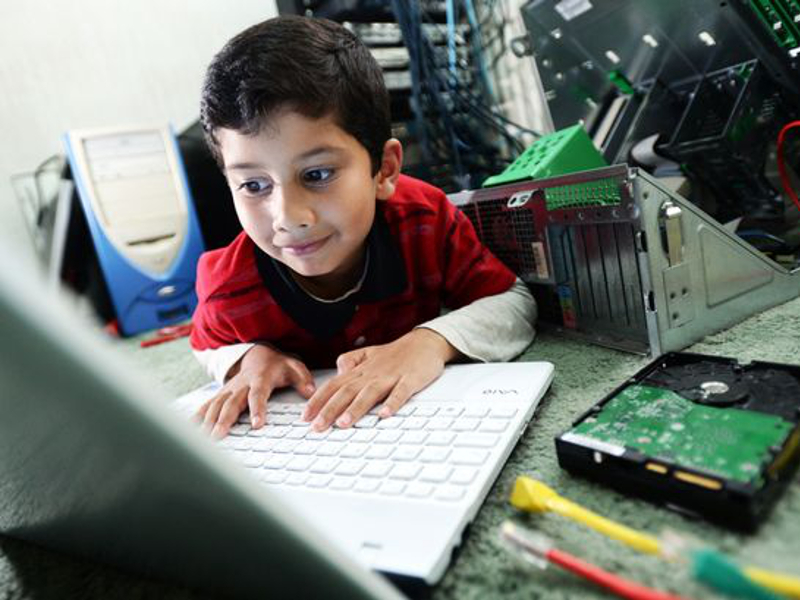
Ayan Qureshi. Photo via coventrytelegraph.net
Ayan Qureshi from Coventry, England was just five years and 11 months old when he passed a Microsoft exam making him the world’s youngest-ever certified computer specialist.
The young boy was almost turned away by examiners at Birmingham City University when he arrived with his father to take the test, but a phone call to Microsoft soon cleared things up and Qureshi took his place alongside the usual adult candidates.
Having passed the online exam normally taken by aspiring IT technicians when they start university, Qureshi became the proud holder of a certificate stating his competence in using operating systems created by Microsoft, The Coventry Telegraph reported.
Lauren Boyle
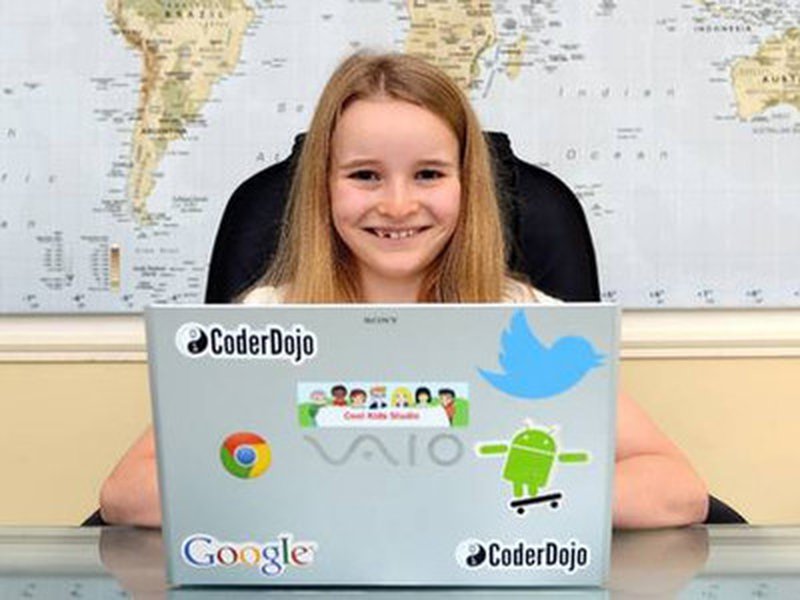
Lauren Boyle
Advocate for girls in STEM and developer of three websites, the remarkable Lauren Boyle was crowned EU Digital Girl of the Year 2014 just before she turned 10.
The young Dubliner is the founder of Cool Kids Studio, an initiative that spans three websites she has built herself and was recognised in the websites category at 2014’s CoderDojo Coolest Projects Awards.
Who else but Boyle could the Taoiseach call on when he wanted to learn the basics during an Hour of Code? Demonstrating her skill as an instructor, Boyle walked the country’s leader Enda Kenny, TD, through a lesson in pixels and programming.
Niall Kehoe
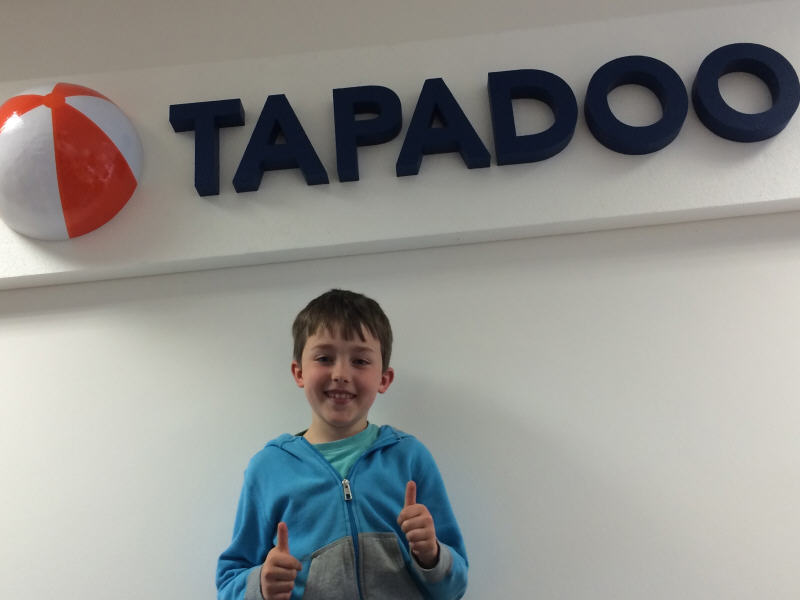
Niall Kehoe
Ten-year-old Niall Kehoe from Enniscorthy, County Wexford joined the ranks of young Irish coders who have published apps to the Apple App Store in May 2014.
Kehoe said he was inspired to join CoderDojo when he heard young Irish app developer Jordan Casey on the radio. In 2010, he began learning how to code at his local dojo and became proficient in a number of programming languages, including C, CSS, JavaScript and Objective C.
His free game – a Space Invaders-style production titled Kehoe’s Crazy War of the Worlds – was created using Game Salad software on an old Windows computer.
Tyriah Allison
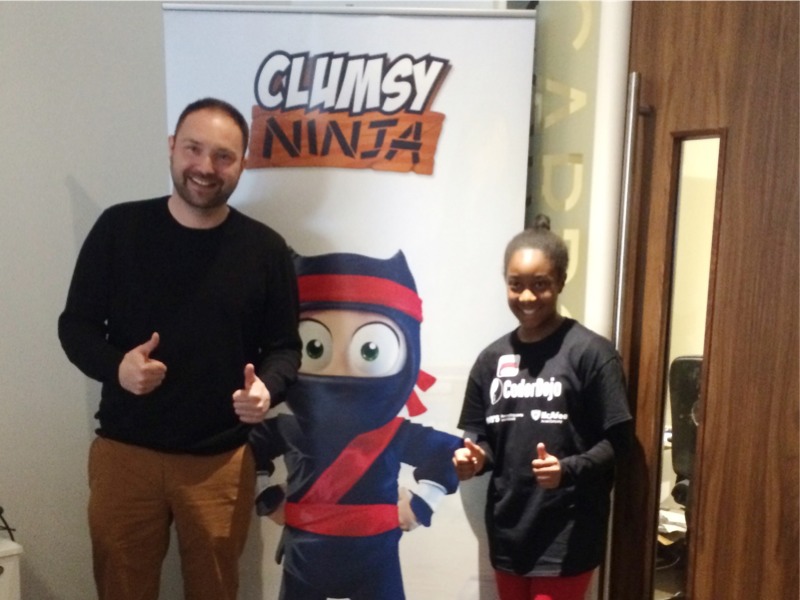
Tyriah Allison pictured with NaturalMotion CEO Torsten Reil at the first CoderDojo Oxford
A coder from the age of nine, Tyriah Allison became the youngest CoderDojo founder worldwide at just 11 years old.
The primary school student from the Jericho suburb of Oxford led a small group of her peers on their beginner’s journey to learn to code in the headquarters of games and technology company NaturalMotion in April 2014.
CoderDojo co-founder Bill Liao had encouraged Allison to start her own Dojo and so she emailed NaturalMotion CEO Torsten Reil, because she was a big fan of their game, Clumsy Ninja. Reil immediately agreed to host the Oxford CoderDojo and even found volunteer mentors to help.
Andrew Barret, Matthew Mallon, Áine Ellen O’Neill, Ruth Whelan and Emily Mary Ray
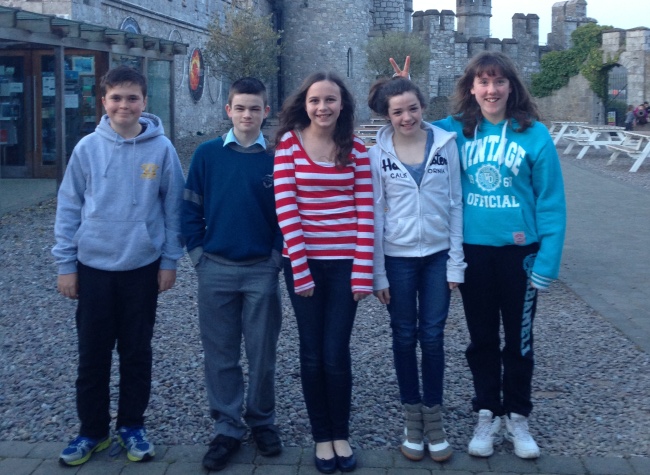
Andrew Barret (13), Matthew Mallon (12), Áine Ellen O’Neill (13), Ruth Whelan (13) and Emily Mary Ray (13)
In April 2014, five CoderDojo members ranging in age from 12 to 13 went aboard the first direct Aer Lingus flight between Dublin and San Francisco in five years with the aim of making astronomical history.
The gang were invited to San Francisco by the city’s mayor, Edwin Lee, and, during the flight, they used the on-board Wi-Fi to connect to robotic telescopes in Portola Valley, California and take snapshots of outerspace before dawn broke on the west coast.
The young coders gained live access to the telescopes as part of a dual-education sister city partnership developed by Cork Institute of Technology’s Blackrock Castle Observatory.
Jamie Edwards
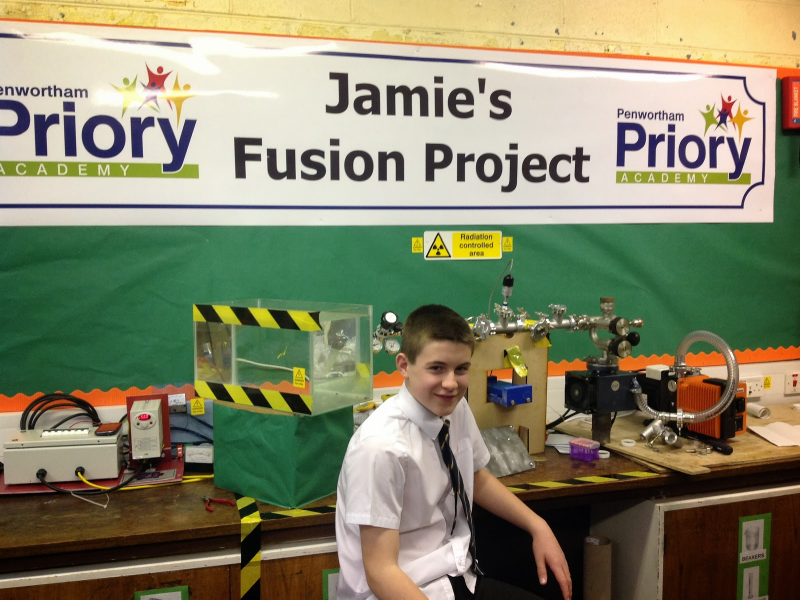
Jamie Edwards
At 13 years old, Jamie Edwards made his name in history as the youngest person ever to have created a working nuclear reactor.
The student of Penwortham Priory Academy in the UK calls himself an ‘amateur nuclear scientist’ and received funding of stg£2,000 from his school’s head, Jim Hourigan, to develop his reactor.
Initially, Edwards found it difficult for his work to be taken seriously and numerous bodies rejected his funding application. Hourigan himself admitted his concerns that the project could be dangerous, but Edwards assured him that he wouldn’t blow the school up.
Harry McCann
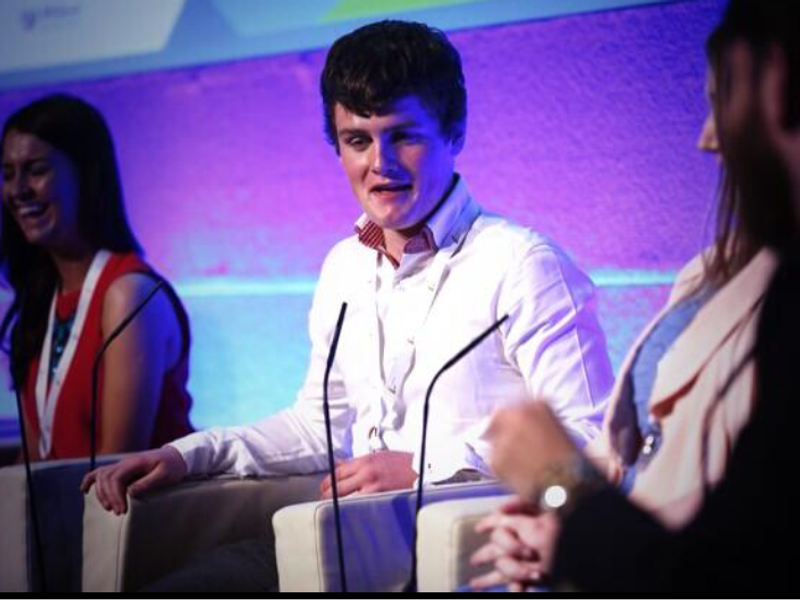
Harry McCann
At just 15, Harry McCann is already CEO and founder of his own company, Kid Tech, as well as the initiator of a movement to bring young voices to the digital education agenda.
With Kid Tech, McCann aims to make hundreds of schoolkids proficient in web design and coding through courses and workshops. McCann himself has been coding since the age of 12 and began attending and mentoring at CoderDojo at 13. He believes Kid Tech is complementary to this global volunteer-led movement rather than a competitor.
McCann established the first Digital Youth Council last year, bringing together a group of 12 of the leading young people in technology, science and communications to discuss how young people can best utilise advancements in digital technology to their advantage, particularly in the education system.
McCann’s energy and conviction have attracted high-profile support. TV personality and businessperson Norah Casey joined Kid Tech as a course advisor and other supporters include actor and presenter Stephen Fry and James Anderson from ThinkSpace.
McCann, who studies at Scoil Mhuire, County Kildare, also won a Junior Entrepreneurship Award in 2014 and The Huffington Post named him Young Entrepreneur of the Week.
Adam Power and Áron Hoffman

Google Ireland MD John Herlihy with Call to Code winner Áron Hoffman and then-Tánaiste Eamon Gilmore
Two Dublin students were the proud winners of the first Google Call to Code competition in May 2014, which challenged participants with logic and programming puzzles.
Competition was fierce with 2,500 students taking part, but both 15-year-old Adam Power (winner of the junior cycle group) and 17-year-old Áron Hoffman (winner of the senior cycle group) proved themselves in achieving the highest scores in the online competition.
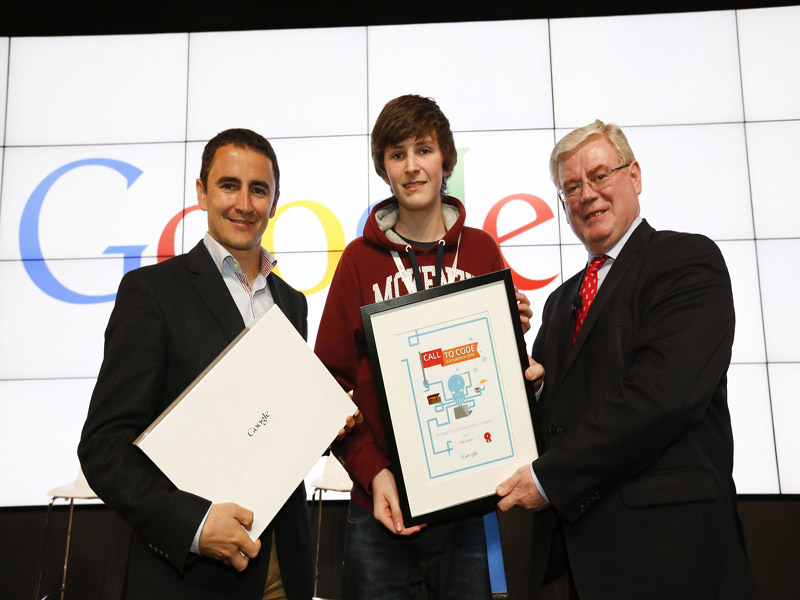
Google EMEA VP Ronan Harris with Call to Code winner Adam Power and then-Tánaiste Eamon Gilmore
Both young men received a MaKey MaKey invention kit and a brand new Chromebook Pixel as their reward. Hoffman later travelled to Taiwan for the International Olympiad in Informatics with medal-winner Richard Tynan (see below), and is determined to compete once again in 2015.
Conor Foy and John Neill
Conor Foy pictured with his ISEF project. Photo via Intel
Irish students picked up several prizes at the annual Intel International Science and Engineering Fair (ISEF) in Los Angeles last summer.
Conor Foy, a fifth-year student at Coláiste Chiaráin, Co Limerick, picked up both a special award and a category award for his project involving a device that can measure, display, transmit and record the timing difference between, and the force exerted by, a crew of rowers.
Foy’s system is unique in that it looks at the timing of the oar and the force of each individual stroke, not just the movement of the seat.
John Neill pictured at his ISEF project stand. Photo via Intel
John Neill, a student at Down High School, Northern Ireland, also picked up a category award in the Electrical and Mechanical Engineering division for his project, Fone2Find, which is based on a key fob that could be used to help people identify a range of products that might be lost or misplaced.
Ciara Judge, Émer Hickey and Sophie Healy-Thow
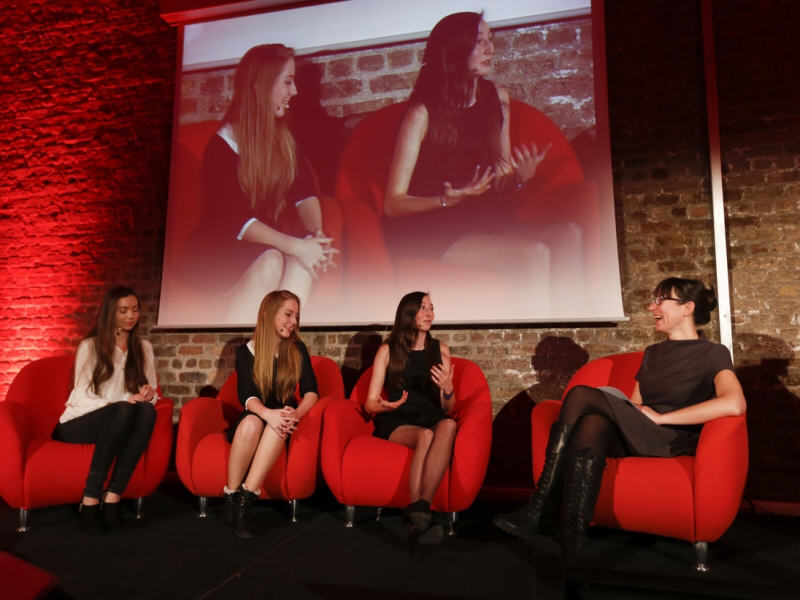
Sophie Healy-Thow, Émer Hickey and Ciara Judge chat with Silicon Republic CEO Ann O’Dea at the Women Invent Meet-up in Dublin. Photo by Conor McCabe Photography
For this team of schoolgirls from Kinsale Community School in County Cork, their string of successes began with being crowned champions at the 2013 BT Young Scientist & Technology Exhibition for their project, Combating the Global Food Crisis: Diazotroph bacteria as a cereal crop growth promoter.
In 2014, Ciara Judge, Émer Hickey and Sophie Healy-Thow went on to win the Grand Prize at the international Google Science Fair, were recognised as ‘Ones to Watch’ on our list of 100 Top Women in STEM and presented with Rising Star awards, only to then be honoured in Time’s list of The 25 Most Influential Teens of 2014 alongside Nobel Peace Prize winner Malala Yousafzai.
As well as winning a trophy case of awards, the girls have also participated in a number of public engagements promoting science education and have been recruited as members of Harry McCann’s Digital Youth Council.
Paul Clarke
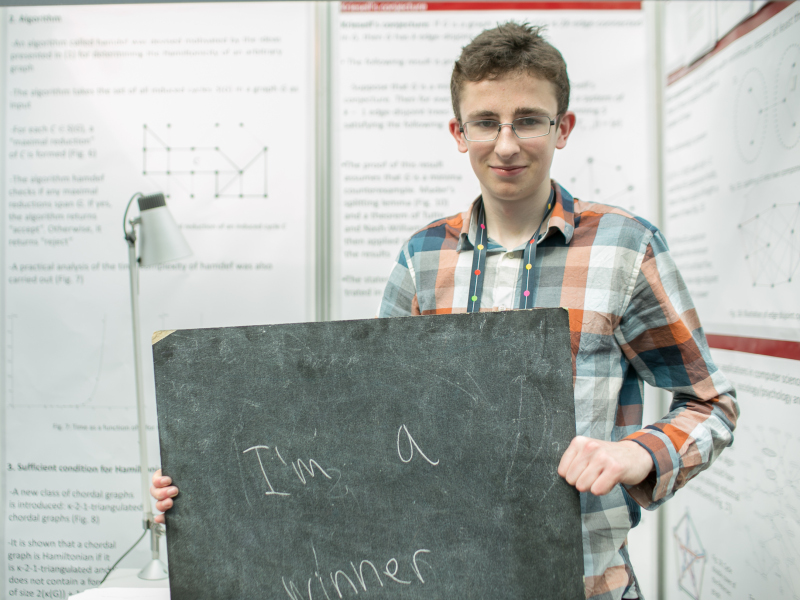
Paul Clarke pictured at the European Union Contest for Young Scientists in Warsaw, Poland
Clearly, 2014’s BT Young Scientist winner had big shoes to fill, but it was a fine fit for 17-year-old Paul Clarke of St Paul’s College, Dublin.
After months of incredibly hard work by the young Dubliner, Clarke made some never-before-seen discoveries in the complex mathematical field of cyclical graph theory, for which he gained recognition both in Ireland and abroad.
He was among those students awarded at the annual Intel International Science and Engineering Fair (ISEF) last summer – along with Conor Foy and John Neill – receiving a Special Award from the American Mathematical Society for his project, which solved a problem related to the Travelling Salesman Problem that has been baffling mathematics since the 1930s.
Representing Ireland in the European Union Contest for Young Scientists in Poland in September, Clarke placed second in the Mathematics category for a €5,000 award, plus a week-long visit to the European Organisation for Nuclear Research (CERN) in Geneva, Switzerland.
Richard Tynan
Richard Tynan accepts his bronze medal at the International Olympiad in Informatics in Taipei, Taiwan
On his third try at the International Olympiad in Informatics (IOI), 19-year-old Richard Tynan returned to Ireland with a bronze medal in the summer of 2014.
The 26th IOI, representing the pinnacle of computer programming at secondary-school level, was held in Taipei, Taiwan. More than 300 students from 82 countries battled to solve six highly complex algorithmic problems over two days, many of them self-taught in techniques generally introduced to third-year computer science students.
For Tynan, who was representing Cistercian College, Co Tipperary, this was his third and final year attending the IOI before moving on to study computer science at the University of Cambridge in the UK, and he was determined to win a medal.
“To put it in perspective, the UK, Spain and Hungary also only received one bronze medal, so when you compare these populations, Ireland is definitely punching above its weight,” said Gary Conway, who led the Irish delegation and was delighted to witness Ireland’s first IOI medal win in five years.
